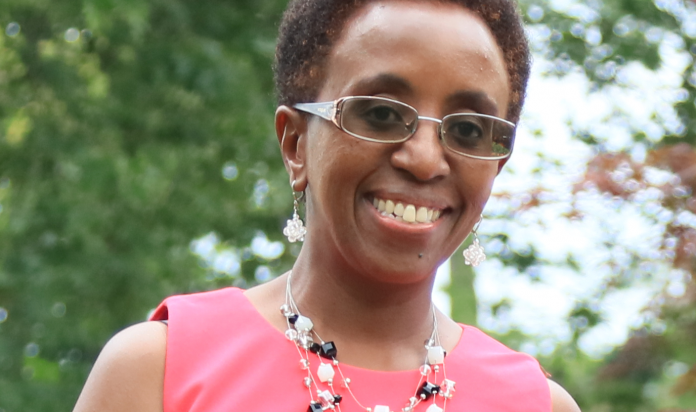5 Things the Online Boot Camp Taught Paskwa Mutunga About Reaching Her Goals

Paskwa Mutunga launched her career in technology infrastructure and operations, performing systems management and administration. She enjoyed implementing the infrastructure for various organizations, but found her fascination with the actual software continuing to grow. Paskwa was drawn to the creativity and possibilities of software development — and in short, she felt she was missing out on the fun.
Here’s how Paskwa transitioned into a role that excited her — and her top five takeaways from the experience.
1. Be persistent.
As a self-motivated learner, Paskwa took a handful of online software development classes and taught herself what she could using videos and other readily available materials. But she knew she wanted to solidify her skills and pursue a hands-on program that would go beyond the theoretical and equip her to actually build applications.
At the time, Paskwa had a full-time job and two young children. She needed the flexibility of an online boot camp, and was set on learning through the University of Toronto. The only problem? Back in 2016, UofT didn’t have an online option. Paskwa continued checking in regularly while self-studying, and in September of 2018, she enrolled in the first online cohort of UofT SCS Coding Boot Camp. She knew what she wanted — and she kept searching until she found it.
2. Utilize resources.
The online format gave Paskwa the flexibility she needed to fit into her busy lifestyle. She negotiated a schedule with her employer to work three days a week instead of five, committing the other two to coursework. One of the most effective ways she used her dedicated school days was to log onto the instructor and assistant instructor office hours or schedule a 1:1 appointment for added assistance.
“The learning didn’t end when class ended,” said Paskwa. “The assistant instructors were very gracious with their time. If they knew I had been waiting, they’d almost always extend their hours to accommodate me. And if I Slacked them a question, they’d send answers right away.”
Accessing the GitLab repository for everything that was covered in the course, Paskwa would review lessons and material regularly, consistently spending more than 20 hours a week on course content to see the best results. “I absolutely felt that I had all of the resources I needed to succeed,” she said. ”It was just up to me to use them.”
3. Stay connected.
Paskwa had taken numerous asynchronous online courses in the past in which she was given static materials to review on her own. The boot camp offered through UofT SCS, by contrast, was completely interactive. The live, instructor-led sessions met regularly at standard times over the course of each week, and Paskwa communicated with her classmates frequently — whether over Slack or Zoom.
“The collaborative nature of the course was great,” said Paskwa. “Being able to share code and solve problems together accelerated the pace of learning. I know I learned much more quickly than I ever did tackling topics on my own.”
4. Make sacrifices.
Though six months may seem like a long time, it’s a relatively short period to spark a complete career transition. Paskwa found that the more she was willing to sacrifice, the more she was able to get out of the online boot camp experience. It could be lonely at times, but having her husband and children to support and cheer her on made all the difference.
“I quickly learned that even missing just one class was problematic,” said Paskwa. “I’d log back in and feel really lost, and the time was difficult to make up on my own. I did my best to never miss a day of class, and it paid off. I had classmates go on week-long vacations, and when they came back, they fell too far behind to catch up. But six months of sacrifice — and missing just one Christmas vacation — was worth it. It’s much more difficult to make up the time lost inside of class than it is to make up the time lost outside of it.”
5. Power forward.
Paskwa took advantage of all the career services offered throughout the boot camp, preparing her career materials in spite of her project deadlines. By the end of the course, she had her professional toolkit — GitHub, portfolio, resume, cover letters — ready to go.
Today, Paskwa is the Director of Technology, Analytics, and Projects at Children Believe, an organization supporting children’s access to education around the world. There, she manages both an infrastructure and a development team. She acts as a coach and jumps in to solve coding errors when they crop up. “I get to be this hands-on because of the boot camp,” said Paskwa. “Without my coding experience, I would need to rely on the developers to solve our problems. My skills set me apart as a stronger leader — and they prevent me from being limited in a role again.”

 Live Chat
Live Chat